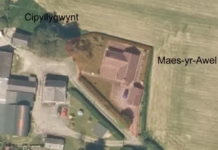What really happens when you invest in a Contract for Difference (CFD) Trading? As a CFD trader, what is your edge among other individual financial traders out there? If you look at the new traders investing in CFD trading, you will most likely feel encouraged to try it yourself. But what really goes around with CFD?
Every new trader who comes across CFD gets interested in it. CFD enables the trader and broker to come up with an agreement that involves trading on financial instruments. The profit will then be based on the difference in the opening and closing prices. In CFD, if the closing price is higher compared to the opening price then the seller will be the one to pay the buyer. But if the scenario goes the other way around, then the odds will be at the seller’s side.
More importantly, CFD gives a chance to leverage when trading by putting a small deposit that lets them hold the trading position. Leverage gives the buyer the opportunity as well as flexibility. For example, in CFD, there is no restriction as to when you will place your entry or exit trades. There are also no restrictions as to the time of the exchange.
What are the Building Blocks of CFD?
The main difference between CFD traders among others is that they don’t hold any sort of tangible asset. However, CFD traders are trading on margin accompanied by units which are attached to a security price. As its name suggests, CFD is a contract that is designed to gain profit from its difference made between the entering and exit of a contract.
Common Terms Used in CFD
- Going Long – the initial thoughts of traders when opening a contract in the hopes of raising the price of the underlying asset. For instance, if you expect that the price of oil will rise, you may trade on the long side.
- Going Short – with the use of CFD, investors may open a selling position and anticipate a price decrease of the underlying asset. This trading in the sell-side is called going short.
- Spread – this is the difference between the bid and the ask prices of the security. It is referred to as the transaction cost paid by the trader.
- Commission charges – it is the commission that brokers tend to charge at the end of the trading.
- Holding Costs – it is the charges of the open positions that a trader may pay by the end of trading.
- Market Data Fees – it is a broker-related expense for the exposure to the services offered on CFD trading.
5 Advantages of Trading CFD
- CFDs are one-of-a-kind and mostly come with favorable margins. In fact, it has attracted a lot of brokers from all over the world.
- CFD trades globally. Traders are given the chance to trade in the global financial market.
- CFD is offering a wide number of assets including sectors, global indices, stocks, commodities, and currencies.
- CFD trading allows its traders to benefit even with the falling of the prices of your assets.
- CFD traders don’t have to put in a large amount of money. They only have to open selling and buying positions.

| [donate]
| Help keep news FREE for our readersSupporting your local community newspaper/online news outlet is crucial now more than ever. If you believe in independent journalism,then consider making a valuable contribution by making a one-time or monthly donation. We operate in rural areas where providing unbiased news can be challenging. |






















